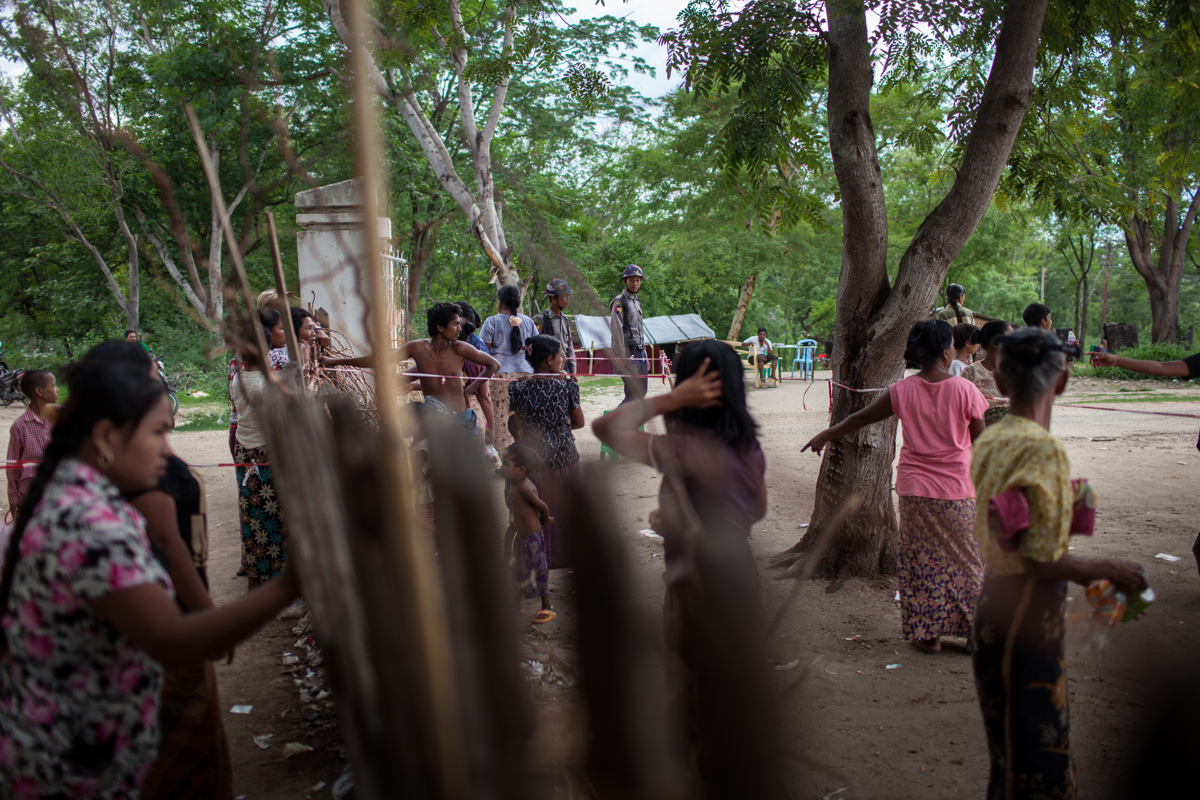969 - Ma Ba Tha
When I first heard about the conflict between Buddhists and Muslims in Myanmar in 2013, I decided to cover what was happening with my friend and colleague, Thomas Cristofoletti. The 969 movement was growing, and they had started to distribute propaganda material and were offering 969 stickers so that people could brand their businesses as Buddhist-owned. Violent conflicts had taken place in cities and townships around the country. We were fascinated by the rise of religious fascism; disaster was spelled. We concentrated our work on documenting the 969 and their relationship with Burmese Muslims. The Ma Ba Tha, born from the 969 movement, managed to instigate laws known collectively as the Race and Religion Protection Laws:
The Monogamy Law makes it a criminal offense to have more than one spouse or to live with a partner without being married.
The Religious Conversion Law requires that a Myanmar citizen who wishes to change his/her religion must obtain approval from a newly established Registration Board for religious conversion.
The Interfaith Marriage Law regulates unions between Buddhist women and non-Buddhist men.
The Population Control Law requires women in certain regions to space the birth of their children 36 months apart.
In 2015, as the first democratic election for decades was taking place, an air of hope and change was in the country, though it quickly became clear that the landslide victory of the National League for Democracy party under the leadership of Aung San Suu Kyi offered no comfort to the Muslim population as the party excluded all its Muslim candidates. Little more than a year after the election, in late 2016 and into 2017, the Burmese military started a major crackdown on the Muslim Rohingya population of Rakhine state. The UN requested that a possible genocide by the armed forces and police be investigated.
Email: nick@ruom.net | Thailand: +61 96 33 99 491
























